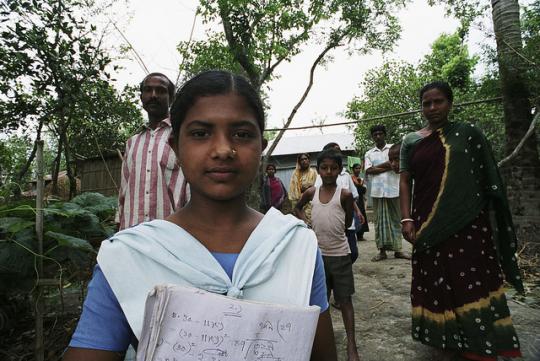
Our schools are central to the mission of building knowledge societies. Yet, we don’t know enough about how teachers and schools are being influenced by the social forces around them. Organizing schools, creating systems of accountability, and focusing on results that matter for parents involve actions outside the school system.
Education reform is often thwarted by forces that affect policy design, finance and implementation. These political economy issues are often acknowledged, but rarely systematically addressed in research or policy dialogue.
To try to make sense of what we know, the U.K. government recently conducted a review of essential research on education reform along five key themes:
Roles and responsibilities: Who are the key stakeholders in the education sector? What are the interests and incentives faced by different players?
Rent-seeking and patronage politics: How significant is the extent of “rent-seeking” – when stakeholders lobby in order to gain political favor – and patronage politics in the education sector, and what is the impact on education reform and school outcomes?
Decision-making and the process of influence: Who are the participants in the decision-making process? What are the direct and indirect mechanisms available to different power groups to exercise their power?
Implementation issues: To what extent are policy reforms implemented and what are the factors that facilitate and impede implementation?
Driving forces: What political and economic conditions drive or inhibit education reform, both in its formulation and implementation?
The review’s findings included the following:
- Among all stakeholder groups, teachers and their organizations have great political power because of their ability to influence electoral outcomes. By advocating for higher salaries not tied to performance, lobbying against decentralized school management, and protecting inefficient and shirking teachers from dismissal, some teacher unions cause educational inefficiency, though others are milder and work constructively to improve the welfare of teachers. By contrast, parents do not have a collective voice on educational matters, since they are not organized. Government and international agencies are recognized as the other major stakeholders in the education sector.
- Rent-seeking and patronage politics are rife in education systems in developing countries. The politics of patronage suggest that it is more convenient to expand educational coverage by, say, building more schools or hiring more teachers, than to fix existing inefficiencies within the system. Some literature suggests that union membership and political connections could be associated with reduced student achievement.
- A variety of groups influence the educational decision-making process and educational change. The literature concludes that the supposed benefits of decentralization are not equitably distributed; in poor rural areas, the local elite captures most of the space for participation in school affairs. On a global scale, international donor agencies and education institutions are exerting more influence on education decision-making in many developing countries.
- Reform failures are often due to low capacity, poor administration, inadequate delivery, lack of information, and leakages of funds. Political economy constraints, lack of political will and vested interests of politicians are contributing factors. Evidence also suggests that participatory programs such as community-managed schools often fail, in some cases due to unequal power relations between poor, rural community members and relatively well-paid teachers.
- Political will is a key force in driving educational change. Democracy is also consistently associated with a shift in spending from tertiary to primary education. However, the effect of additional spending on educational outcomes is dependent on the type of democratic institutions, such as elected parliaments, in place.
- There are positive cases of reform. They mostly occur when the system is expanding and more jobs are being created. The enrollment expansions of the 1970s and 1980s, especially in Latin America but also other developing regions, are good examples. Focusing on institutional reforms to improve the quality of education is more difficult, and we know relatively less about this than other areas. There are many stories about policy successes, but not a lot on failures.
To support the World Bank’s partners in effecting positive change, we need to better understand the countries we work in, including their history of reform, stakeholders, and local evidence.
We need to know more about how institutions support and repress real reform. We need to know more about how to empower parents and the poor to affect real educational change that will promote equitable access to quality education. We need to know more about how to analyze education reform from a participatory, multidisciplinary, yet rigorous manner.
In short, we need a program of research on the political economy of education reform.
What else do we need to study, and how can we do it effectively? Let me know in the comments section below.
Follow the World Bank education team on Twitter: @WBG_Education
Follow Harry Patrinos at @hpatrinos
Related:
- Institutional effects as determinants of learning outcomes: Exploring state variations in Mexico
- The political economy of public spending on education, inequality, and growth
- A Rigorous Review of the Political Economy of Education Systems in Developing Countries
- Maximizing the performance of education systems: the case of teacher absenteeism
- Politics and Preschool: The Political Economy of Investment in Pre-Primary Education


Join the Conversation